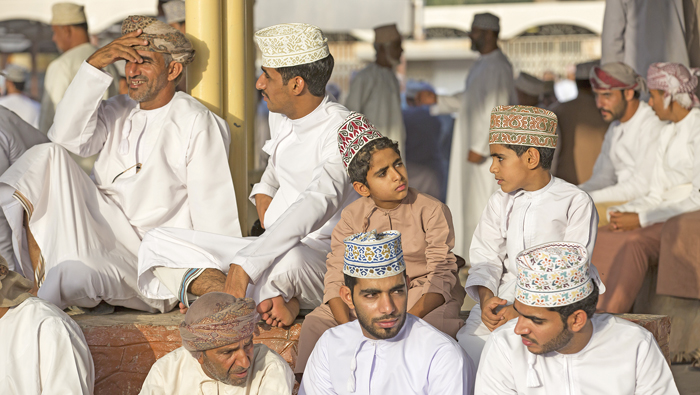
Muscat: An Omani language specialist has called for native speakers to help keep endangered languages in Oman alive. The call has been echoed by the citizens who speak the various languages.
According to the Ministry of Heritage and Culture, there are more than eight languages spoken in different parts of Oman, namely Mehri, Hobyót, Jabbali, Swahili, Balushi, Lawati, Harsusi, Bathari and Kamzari.
Dr Said Al Jahdhami, Assistant Professor at Sultan Qaboos University, is the author of an article entitled “Minority Languages in Oman”. Speaking exclusively to Times of Oman, Dr. Al Jahdhami said that there must be a joint effort to protect these unique languages before they disappear.
“I call for more preservation of these languages especially from their speakers because it is up to them to save their native tongue before it dies.”
According to Dr Al Jahdhami, these languages belong to three groups: Kamzari, Lawati, and Balochi belong to the Indo-Iranian language’s family, while Harsusi, Bathari, Hobyot, Mehri, and Jabbali belong to the modern South Arabian languages. Swahili is a Bantu language and it belongs to the Niger-Congo language group.
Ali Al Lawati, a 60-year-old Lawati native speaker reiterated Al Jahdhami’s plea to preserve the language, saying:“I call on the competent authorities to establish institutions to preserve these endangered languages that will be extinct soon.”
“Lawati language is nearly extinct, it is no longer the language of the household. For example, my children understand it, but they cannot speak it.”
Mother-tongue
Musallam Al Mehri, a 35-year-old native speaker in Salalah, said: “Mehri is my mother-tongue and I learned it from my family.”
“Usually Mehri is only spoken among Al Mehri tribe members, however, there are those from other tribes who speak this language as well. This is probably because they live among the Al Mehri.”
Speakers of Al Mehri can be found in Dhofar, Al Wusta, Yemen and Saudi Arabia.
The governorate of Al Wusta is the homeland of Harsusi language. Safia Al Harsusi, a teacher and a native speaker from Wilayat Haima, said:“Harsusi is my mother-tongue and I grew up speaking it.”
When Al Harsusi was asked if she is going to teach Harsusi, she said:”I will pass it to my children, but I am not willing to teach this language to other people because I want it to be recognized as a special language for Harsusi tribe members only.”
Kamzari is a language found in the northern governorate of Musandam.
Safa Al Kamzari, a 21-year-old native speaker from wilayat Khasab, said:”I was raised up speaking this language. I speak it with my family and in my neighbourhood. I plan to continue speaking it with my future children.”
Regarding the phonetics of the Kamzari language, Al Kamzari said:”When I try to teach my friends some Kamzari words, they find them difficult to pronounce.”
Swahili is another language that is spoken in many parts of the Sultanate, due to the historic ties between Oman and many East African countries.
According to the Ministry of Heritage and Culture, “One of the oldest Manuscripts written in Swahili belongs to the 18th century. It can be found in the School of Oriental and African Studies’ library in the University of London in UK.”.
Another endangered language spoken in Al Wusta and Dhofar is Batharim which is mainly spoken by “Al Bathari” tribe members.
According to the Ministry, it is not a written language but a spoken one. It is linguistically similar to Harsusi, Mehri and Jabbali, as they all share the same origins. Bathari is considered an endangered language because of the spread of the Bedouin dialect.
According to Dr Al Jahdami’s article: “The actual number of Bathari speakers is estimated to be only a few hundred.”
The Zadjali language is also spoken in the Sultanate. It belongs to the Indo-Iranian language family and, according to Dr Al Jahdami, is a mixture of Balochi, Sindi and Persian. Unlike some of the other languages, Zadjali is spoken in various parts of the Sultanate.